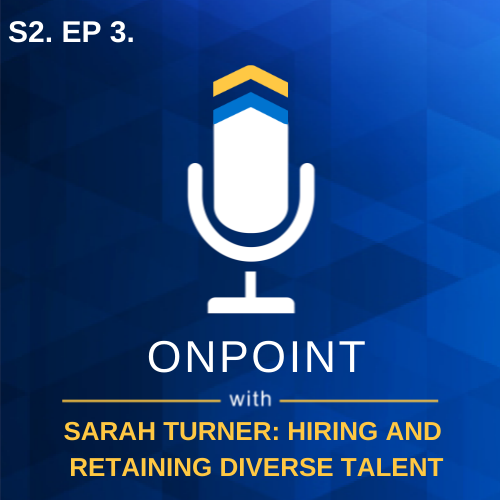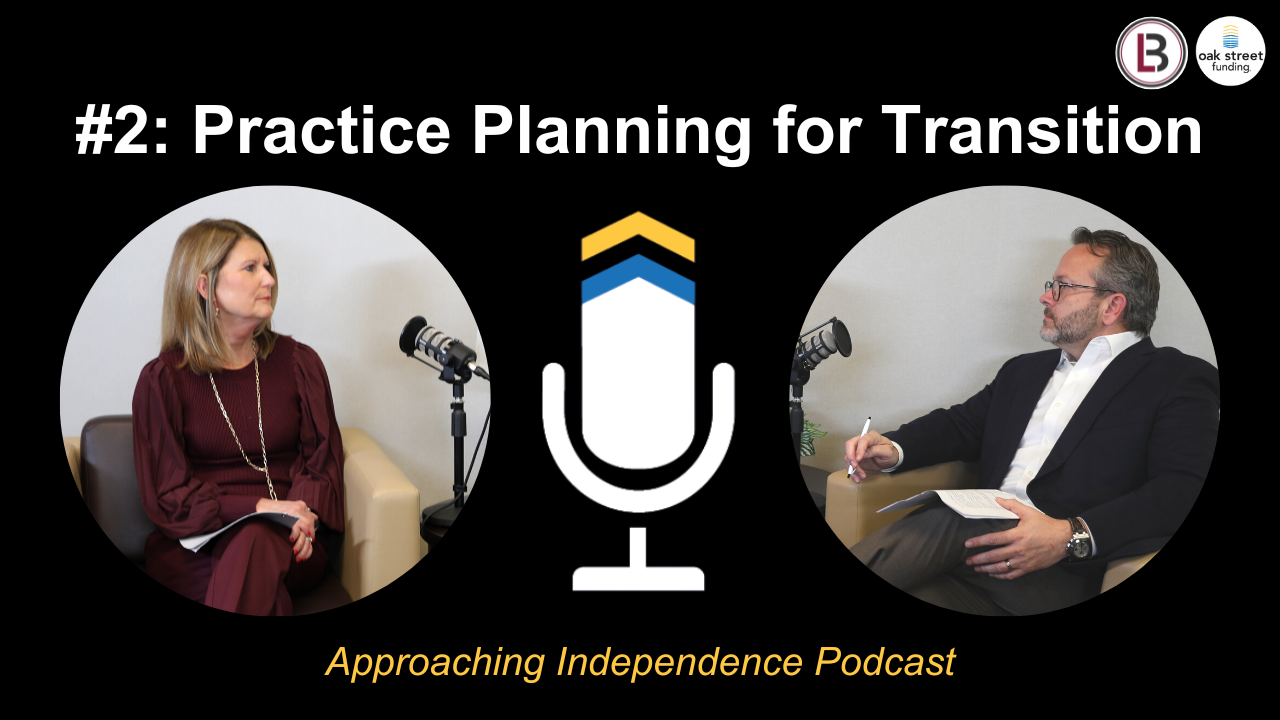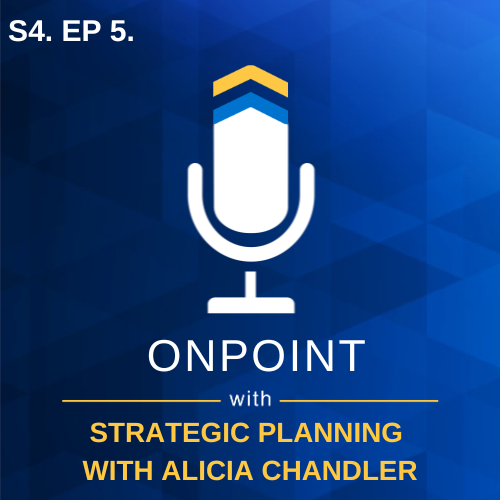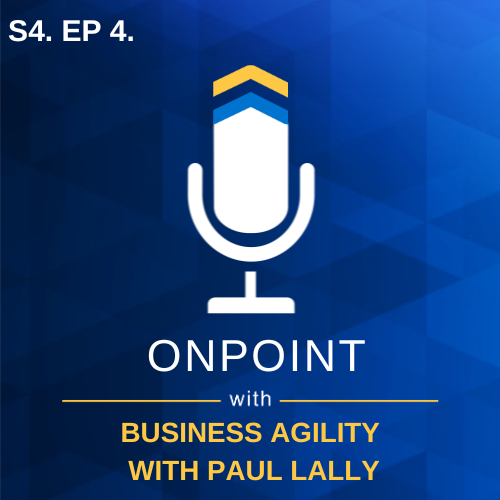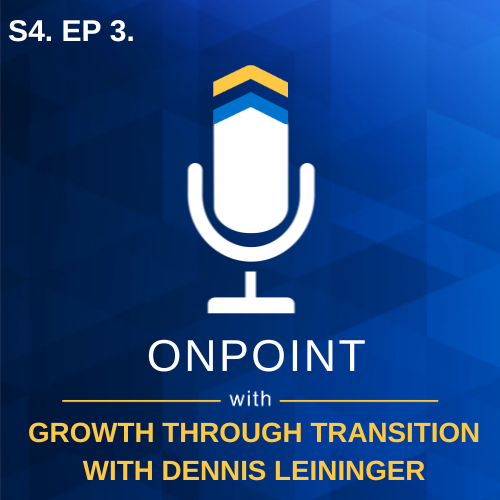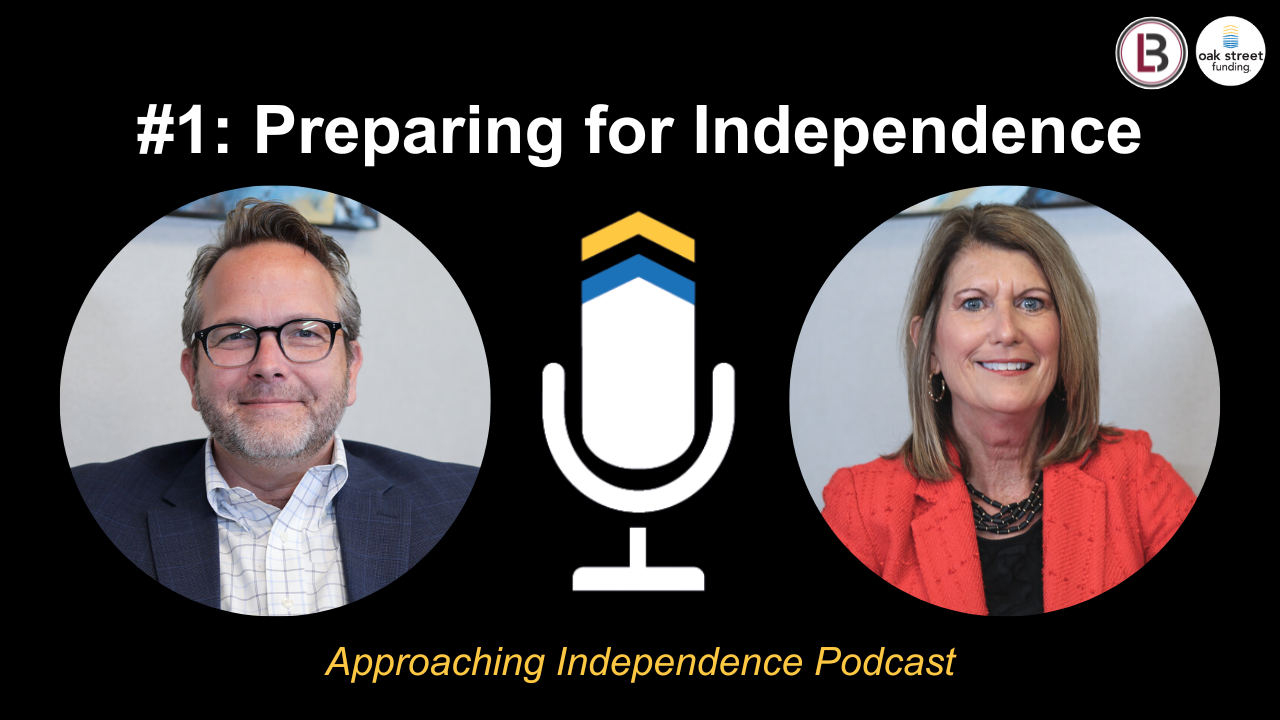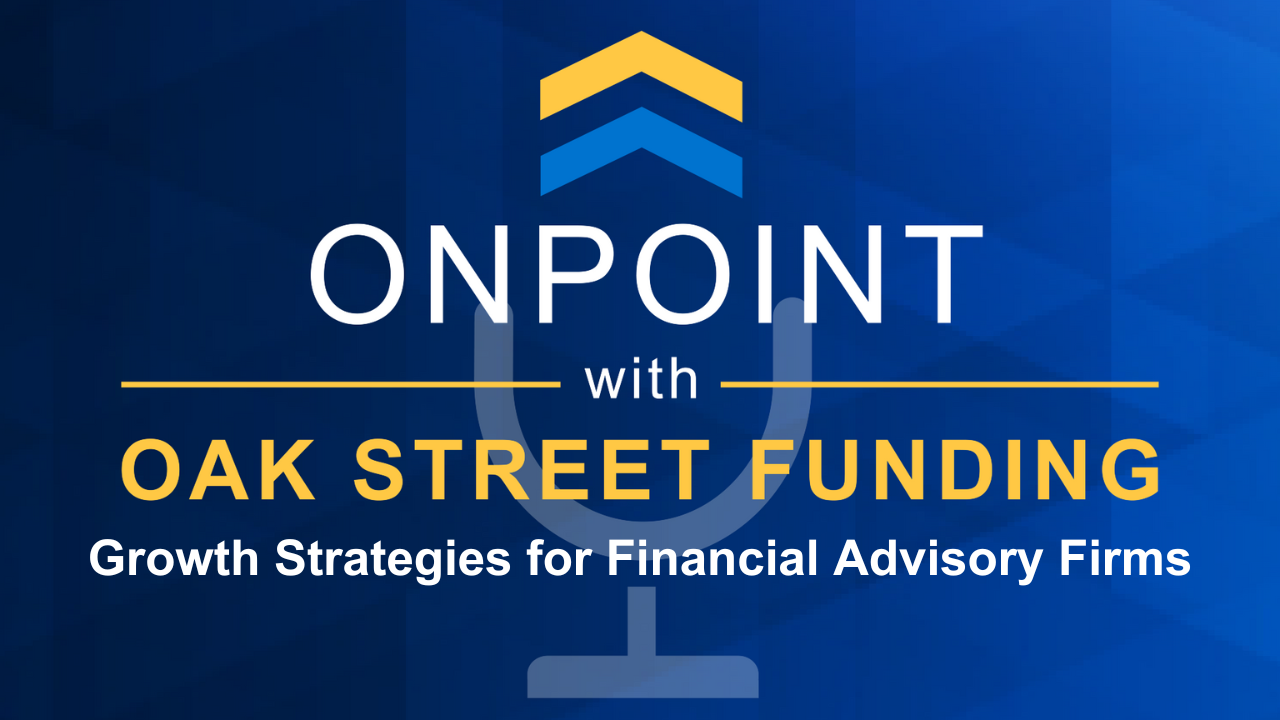S2. Ep. 3 - Hiring and Retaining Diverse Talent with Sarah Turner of The Faurote Group
- 0.5
- 1
- 1.25
- 1.5
- 1.75
- 2
Bridget Haight: Hi, and welcome to OnPoint, a podcast by Oak Street Funding where we bring research and data-backed insights to dig into the minds of industry leaders to learn how to stand out and navigate and break through this ever-changing industry. I'm your host, Bridget Haight, and you can support this podcast by following us on Spotify, Apple Podcasts or our website, or wherever you get your podcasts. We will be there hanging out, talking to industry leaders and ready to empower you to grow your business. Now let's get OnPoint. Today, we welcome Sarah Turner, Principal with The Faurote Group, and Sarah has dedicated her career to helping organizations tap into their most valuable resource - people. As a professional trainer, consultant and executive coach, Sarah is passionate about helping people grow. Today, Sarah is going to share ways for businesses to find and retain diverse talent. Welcome to the show, Sarah.
Sarah Turner: Hello. Thank you so much for having me.
Bridget Haight: So to just jump right in, how did you begin your career as a trainer and a consultant?
Sarah Turner: I get this question a lot. And I have to tell you that I have probably the most non- traditional path to becoming a leadership consultant. You would not imagine someone coming into the world of their working profession right out of college into accounting and then jumping to a leadership consultant. It is not the normal path, but it is exactly how I got here and I wouldn't change a thing.
Bridget Haight: That's great.
Sarah Turner: I started out of college in a world of professional services in accounting, so I am a CPA. And so I started at a large company called Deloitte. It's a large global employer. A lot of people are aware of it. And so as I started, I was in the traditional space where I was serving clients in the accounting realm. But one of the things that was naturally always coming to the surface was I loved finding out what our teams needed, where their struggles were. And if there was somebody new, I was the person volunteering, can I help show them the ropes? And so by the time I was probably a few years in, I was either volunteering or being asked to help with initiatives where we were looking at what I would call talent development. And so by the time I got to, I'll call it year five, I was already carved out, some of my time with external clients, but a lot of my time was with internal clients, our staff. And it gave me a chance to decide how I wanted to take the things that I liked, but also felt like I had a strength and a talent for and bring them to life. And so years later, here I am doing it as a primary career and it's fascinating. I love it.
Bridget Haight: You seem very happy about it.
Sarah Turner: Yeah. It's amazing.
Bridget Haight: I mean, for those of you who cannot see Sarah, she literally glows when she talks about her work. That's great. So what do you like most about doing what you do?
Sarah Turner: Oh, that's a great question too. So a lot of people are familiar with the Clifton StrengthsFinder. And so if you are, those of you who have heard of it before, it helps give you a sense of who the elements of what I often call your DNA that come up the most, that give you strength. And it kind of gives you a label for what those things are. And so people who know me are never surprised when I tell them what's called your top five. So my number one is positivity. And so that's something that I kind of need to create energy. The second one is WOO, which stands for winning others over. So anytime I have a person I don't know finding out who they are, what makes them tick is intriguing. The third one is communication. So finding a way to say something that makes someone want to hear it, I think is amazing. The fourth one is probably the most prominently represented in my career, it's called developer. It's finding space where someone else with your help gets further. And then the last one is achiever. I love seeing results. So when you look at these five things, this space being a leadership consultant where I work either with individuals, small groups or with an organization's culture to help them unleash or reach potential that they didn't even realize they could get to is an energy driver for me. Every day there's somebody different that I'm working with, with a different challenge and decoding it and creating what I would often call the right path for them. It's so much fun. It really is.
Bridget Haight: It sounds like it's actually a lot of psychology involved in it too. That's crazy.
Sarah Turner: Yeah. I can't tell you how many times I tell people, if I had to do it over, and I wouldn't change that I have this accounting background because it got me right where I am now, but I would definitely study behavioral psychology or organizational leadership. It's amazing. It's so great.
Bridget Haight: Wow. So part of your role includes helping businesses learn how to find and retain diverse talent. So why is a diverse workplace so important?
Sarah Turner: When you pause and you think about the idea of, if you have a diverse workforce, what does that bring you? Sometimes I think there's this amazing body of research that makes the answer to that obvious. And that's because there's so many statistics that show that it's a representation of positive recurrent outcomes when you have a diverse workforce. And some of the statistics that probably call to me, and maybe it's because I have just a little bit of this niche passion for this, but even when you look at what you can do or what you can bring when you have a group of people that don't see something the same way, again, the statistics just show it. Every trackable metric that an organization looks at, no matter the industry is going to find that when you compare having a diverse moment with differing perspectives at the table trying to solve problems, you're going to find those metrics go in the positive direction that you want them to go. One that I, again, I think about often, there was, I think it was Fast Company, several years ago did a study that showed when you have above average, and this is just one type of diversity, but above average gender diversity, you would have upwards of 58% higher success rates and trackable metrics than an organization that has below average gender diversity. And you think, that's not a tiny number, right? It's a very compelling statistic. If it were 8% or 18%, it may be something that you would say," Well, we'll get to that." But 58% is huge. So again, it becomes compelling to see why it's a needed thing to focus on as a company.
Bridget Haight: Man, definitely. So what does an ideally diverse workplace actually look like?
Sarah Turner: Right. That's the million dollar question. And if I had the exact formula, I'd have probably a best selling book, but I think the answer that I often would give someone is that there's not an exact replica that every company needs to, I guess, attain or reach for, but there are a few things that are important to focus on. And I often tell people that if I had to give them advice, I would tell them to strive for, at a minimum, a two dimensional platform. And so those two things that I would share include being a diverse workforce, but also what is recently wonderfully talked about, which is also having an inclusive workforce. And so those two things, I think so many people say them together that many people think they're the same thing.
Bridget Haight: Yes. I can see that. Yeah.
Sarah Turner: Right. But they're not. If you look definitionally, a diverse workforce means that you have a variation in the demographics of the people who represent you. And for many people, that's probably the one thing most people focus on the most. What is really important is that that engine be represented for sure, but you also want to make sure that you have the engine of inclusivity. As an example, I think about if you only assumed that diversity meant a variation of demographics, then you might miss the chance to realize that two people who have the exact same demographics could be very diverse. And you miss the chance to include a person who on the surface may seem the same, but potentially because of where they grew up or who taught them things or what experiences they've had, they could look exactly the same, but be a wonderful portion of diversity if you brought them in. So if you have both that concept of a variation of demographics and a highly inclusive workforce, you have these two really solid engines that together make more of an ideal space. And it helps you understand where you want to put your efforts if you focus on both of them.
Bridget Haight: I see. Okay. So what are the most common challenges that leaders face when they're striving to build a diverse talent pool?
Sarah Turner: There are a lot. I would say, that the first one that comes to mind is probably assumptions. When we go into a opportunity to bring in and, or unleashed talent, it is very easy to see a element about a person and then say, okay, A plus B must equal C. And that's when that barrier pops up and you unfortunately don't end up with either diversity or inclusion. One of my favorites, and primarily because I can vulnerably admit I was this person in my career, but one of my favorites is looking at someone's age. I look back at my career and I can undoubtedly say that people looked at me when I was very new as a person who didn't have much to contribute, right. Because you're learning, you're relatively, the phrase that comes to mind green, you don't know much. And so it's almost like you get pushed aside, just watch for a bit, right. And when you get that target number of experience, then we'll start including you. When in reality that's not a truth. And that assumption that someone's age, for instance, would make them less likely to be a contributor it's something that becomes a huge, huge barrier. There's this wonderful word, I wish I coined it, I did not, but I heard years ago called gentoring.
Bridget Haight: Gentoring.
Sarah Turner: And I had never heard it before. And what it really refers to is reverse mentoring. And it's an environment where you say, how can I share and guide someone? Yes. But how can I always assume they have something that they can give me back, no matter who they are, no matter their background. Often someone who's less seasoned than me as an intentional approach to grow your perspective, and I think that's such a great example. We take assumptions and unfortunately we put them up as a barrier to creating that ideal environment. The other one that I think sometimes gets in the way, which is really well talked about these days, which I love is we have, kind of under that concept of assumption, but I'll call it misunderstandings, that often arrive because our lens is very set. And so when we think about what we believe to be truth, we might look at someone or take a moment and have that lens present and not encourage or not pull in moments of inclusion because unfortunately that barrier is there. I'm going to use what is often called a bias to create my understanding of my opinion and I could be wrong. And if I don't find a way to get past what is sometimes super subconscious, my bias, it's likely that I'm going to unknowingly really dilute the inclusive moments that I could have.
Bridget Haight: So how should leaders begin to create a work environment that is receptive to diversity?
Sarah Turner: Yes. This is a place for great guidance and a great conversation. And again, similar to what's the ideal environment, there's not one answer that works for everyone, but the two things I most often share as advice, these are two great and probably never finished journeys. The first one is you have to establish an emotionally intelligent team. And there's a lot to that. Bridget, we can talk for half an hour just about that, but how do you unleash an emotionally intelligent team? If you focused on that as a leader, you would end up seeing naturally or organically a more inclusive, likely a space where diversity is coming to life. And so focusing on that is probably one of the first ones. The second one that I often share with people is intentionally trying to create what we often call a growth mindset culture in your organization. So if you were to be very thoughtful, very intentional about building emotional intelligence in your team, and again, a nice parallel creating a growth mindset culture, those are going to create traction and they will lead you to a little bit more of that predictable space of positive outcomes in this world.
Bridget Haight: Okay. Wow. And that emotional intelligence thing is fascinating because not emotionally intelligent people, I find that a lot of the time those were not often the best students. Right. I was an emotionally intelligent child, but I was so busy talking and figuring out the atmosphere of a room that I think, I don't know, I was often kind of looked over when it came to academics. I was great at reading and things like that, but oh, math, oh, math. So it's things like that, I'm like, I mean, I wonder how you teach emotional intelligence because it is something that I feel like you're born with, either it's a scale. And you feel like that you can teach emotional intelligence to people?
Sarah Turner: You can. You can. And that's probably one of the reasons why I have taken the last, and now people are going to know my age, but you take the last two decades of my work. And it's crazy for me to say, okay, now I've got 20 years of perspective just in this emotional intelligence space. So I have a little bit of a niche in this in that I am what's called an emotional intelligence coach. So I do a lot of EI coaching, but I'm also something called a master trainer, which means that I can give credentials to people who want to be an EI coach, which is so much fun. And so when I look at the amount of anecdotal research I have watching people grow it. And then also a lot of research that they've done, they have great resonance- based MRI research that shows you can reshape the center of your brain. It's the most empowering thing you can say out loud is that whatever you have cultivated to a certain point, if you take an intentional interest, they show great journeys and pass and aptitudes for you to grow your EI. One of the skills though that's important to create an emotionally intelligent team that you can build, which I think a lot of people assume they already have is the skill of empathy. So there's not going to be ever a skill probably more important that an individual or a team needs to display to create inclusion and unleashed diversity. When I grew up, and this is absolutely no no knock on the people who raised me, but I was told that empathy was putting yourself in someone's shoes. And I think it's a great phrase. I've in fact tried to, in a lot of ways, teach my two boys that same concept. What I realized though as I started looking deeper at the concept of empathy is that that's not necessarily possible.
Bridget Haight: Really.
Sarah Turner: And my example I often use, and I hope he never listens to this, is my 13 year old son. If I really wanted to try to say," Sarah, think like a 13 year old boy," I will never get there. I will never be able to replicate the way he's seeing something. So I started to realize empathy is not having the interest of trying to become that person. Instead, almost a 180, what empathy really is meant to be is giving other people permission to have a point of view. If you can extend a person a moment to say, okay, you have a lens. I can't get into your lens, but I can hear your lens. So I'm going to give you a moment. And you embrace a skill that I would say is at the top of my list, if you want to build an environment where you can recruit and retain, if your culture is these two words, you are going to win. The two words I would say you have to grow is you have to get curious. You have to use curiosity. And empathy is the way that you get curious. And again, it's fascinating to me to help someone learn how to do that better. And all of us can. So one of the things that I was mentioning earlier is as kind of a partner to being an emotional intelligent team, you want to strive to create a growth mindset culture. Years ago I was reading a study that was done in this space. How do you create a growth mindset? What do companies do to have their culture represent a growth mindset? And they were studying what organizations did and how they threaded it throughout what is often referred to as the employee experience. And what it showed was that only about 30% or less of organizations embed the concept of a growth mindset in four or more places in the employee experience. Now, what are those? Recruiting. So if I'm in an interview process, have I taught my team how to ask questions as to whether or not the person I'm hiring has a growth mindset? If I want a growth mindset culture and I want those people to come in and embrace being inclusive, am I looking for them as a person to add to my team by asking great questions to see if they have a foundational growth mindset, right? So that's one layer. Now, once I get them in the company, am I onboarding them by training them on what a growth mindset is? Am I saying," Welcome to this organization. By the way, we believe in a growth mindset culture so much so we're going to train you on what that looks like and what you are meant to display and how you get there. That's another layer of the employee experience." Am I measuring people's contributions? Is it part of the performance process? Am I giving feedback and guidance and what we often call feed forward? Am I giving you a vision of what that will look like? If I'm not, then how am I going to sustain and get people to feel like they really are included? And then you also have to include the concept of how do you coach around it. There are so many layers of how you can embed a growth mindset, but if you want to really retain, it has to be not only said, targeted, but it has to be felt. It has to be real. And that is, again, for me, I see so many organizations lacking intentionality. And they'll say they want it, but then when you look at the employee experience, it's not embedded anywhere in a transparent or intentional way. And so we don't really show it and people leave. There's a lot of statistics around this too. Gallup does so many great surveys, right. And there was a survey that I read in the last few years that I think it was somewhere around 47, 48% of people didn't feel like they were in a safe and inclusive environment in their company. Right.
Bridget Haight: Oh gosh, that's terrible.
Sarah Turner: So when you say that out loud, you think, again, a compelling statistic. That's almost half. One out of every two people in organizations, again, this is just a few years old, would say, I don't know that people really want to know what I think. I don't know that I'm in an environment where someone wants to find a way to grow the kind of discussion by having someone who wasn't yet brought in, pulled into the fold. And so again, there are so many great opportunities that would not only help you get the right people, but then would also help you want them to stay. They would grow roots. They wouldn't want to leave because that environment is so engaging. And so they would stick around.
Bridget Haight: We're about out of time, but before we close for today, I have one last question.
Sarah Turner: Yes.
Bridget Haight: Where is your favorite place that you have visited and why?
Sarah Turner: Oh, my word, that's a great one. One of the things that I would tell you is that my husband traveled internationally for years when we first got married, this is pre kids. So we had a lot of flexibility and I would tag myself onto his agenda and I would go. And one of my favorite all time places is Vienna. It is the most intriguing, charming place. And I think going there and seeing the history, it makes you realize how our perspectives, this goes right back to the concepts of it broadening our perspective. You see a church that took almost 1000 years to build and you realize what I think is old and established history, there's so much more, right? There's always so much more. So I would say Vienna, that's probably my favorite place.
Bridget Haight: Oh, great answer. All right. Well, that was a great story. And thank you so much for joining us today, Sarah.
Sarah Turner: No, thank you.
Bridget Haight: I look forward to speaking to you again. This was fascinating. Excellent. Thank you for the time. Thank you all for listening to OnPoint, a podcast by Oak Street Funding where we bring research and data- backed insights to dig into the minds of industry leaders to learn how to stand out and navigate and break through this ever- changing industry. I'm Bridget Haight, and tune in next time wherever you listen to podcasts as we get OnPoint. Don't forget to subscribe and leave us a review. Thanks for listening. To get in contact with someone at Oak Street Funding, please call 844-353-8022. That's 844-353-8022 to learn more.
DESCRIPTION
Today, we welcome Sarah Turner, Principal with The Faurote Group. Sarah has dedicated her career to helping organizations tap into their most valuable resource – people. As a professional trainer, consultant, and executive coach, Sarah is passionate about helping people grow. Today, Sarah is going to share ways for businesses to find and retain diverse talent.
Want to learn more?
Call 844-353-8022 to speak to an Oak Street Funding team member today.
Today's Host
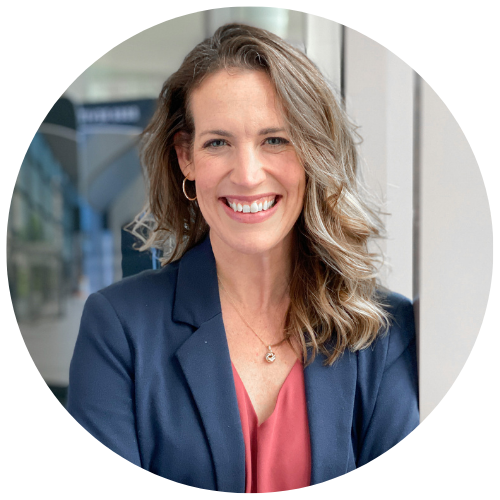
Bridget Haight
Today's Guests


